|
Genres, Themes, Actors, and Directors:
- Dana Andrews Films
- Detectives and Private Eyes
- Falsely Accused
- Gary Merrill Films
- Gene Tierney Films
- Karl Malden Films
- Otto Preminger Films
Response to Peary’s Review:
Peary accurately labels this “one of Otto Preminger’s best melodramas”, noting that it’s a “stylish, atmospheric film” with “a solid script by Ben Hecht”, “marred only by a trite, overly simplistic ending and the fact that the cops so easily convince Tierney’s father that he’ll be judged guilty”. I don’t think I’ve ever seen Andrews more convincing than he is here, playing a “brutal cop known for running roughshod over suspects” — an embittered man who, “influenced by sweet Tierney”, eventually “replaces [his] hostile feelings with a conscience”. The cast of supporting players is also notably fine, with even the tiniest of bit roles perfectly cast and executed (see stills below). Meanwhile, I would argue that Hecht’s script is even better than solid — it’s taut and gripping from beginning to finish, without any wasted scenes or dialogue, and based on a genuinely intriguing premise. From the opening scene — in which Andrews is confronted by his superiors, and warned that he’d better shape up or risk more than just demotion — to his accidental killing of Stevens and subsequent attempts to cover up his actions while wrongly fingering a reviled nemesis, we realize we’re witnessing refreshing shades of gray in what amounts to a suspenseful morality play.
The final statement in Peary’s review, however, simply defies all belief: “Romance between leads would be more effective if Tierney were as pretty as she’d been in 1944’s Laura.” ?????!!!!!!! What in the world is he talking about? While Tierney’s performance here isn’t particularly noteworthy (she’s the one exception to my claims above), she’s as beautiful as always — and since when did relative shades of attractiveness play any part in the effectiveness of an on-screen romance? Honestly.
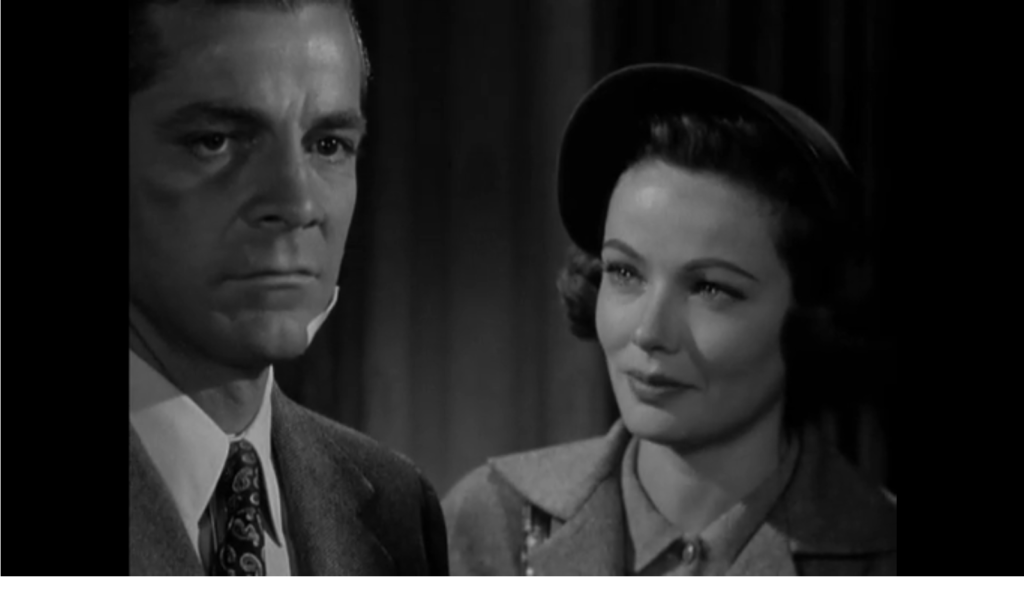
Redeeming Qualities and Moments:
- Dana Andrews as Mark Dixon
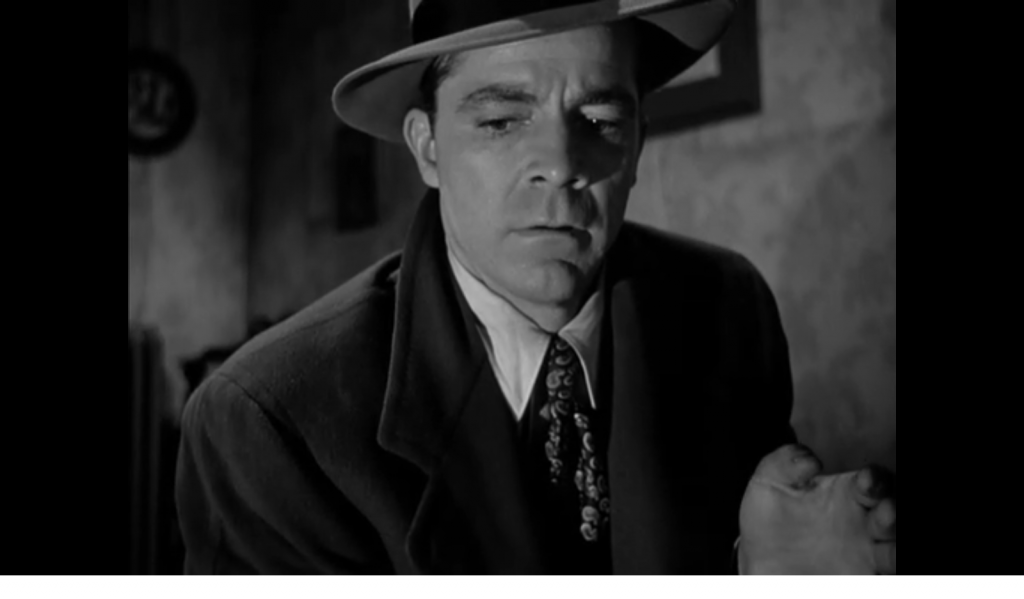
- Fine supporting performances all around
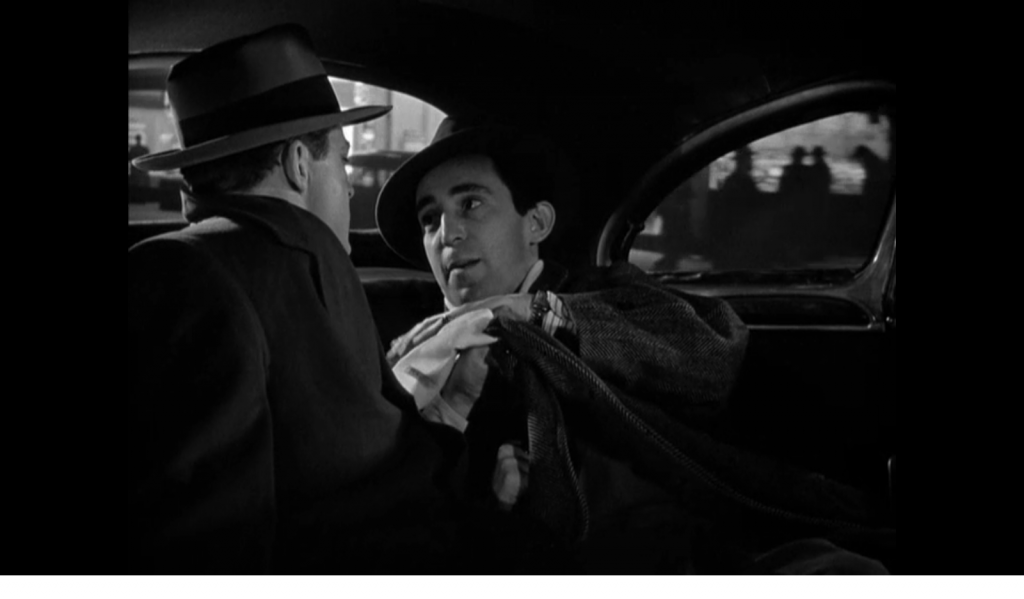
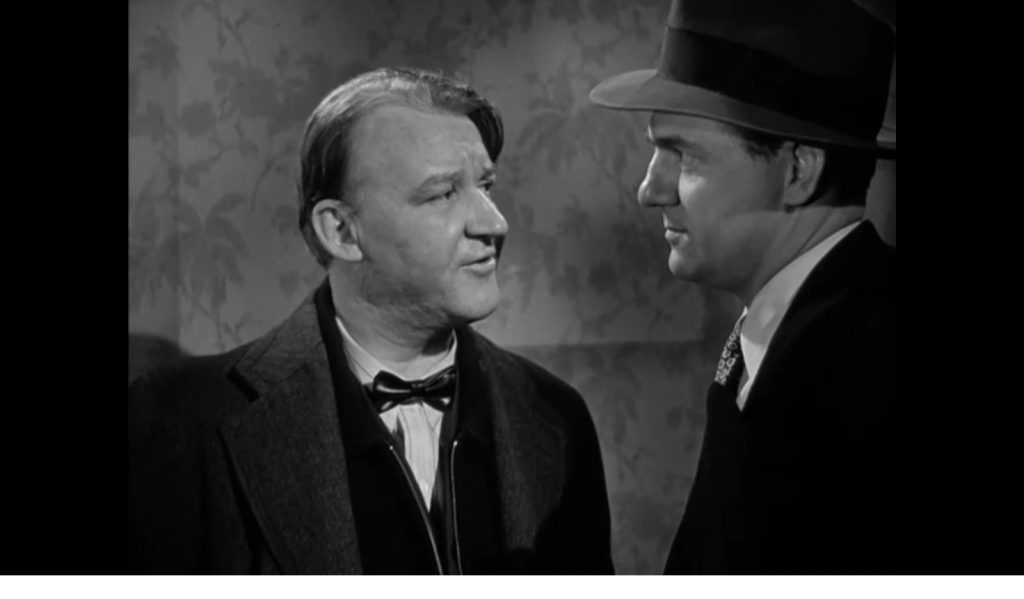
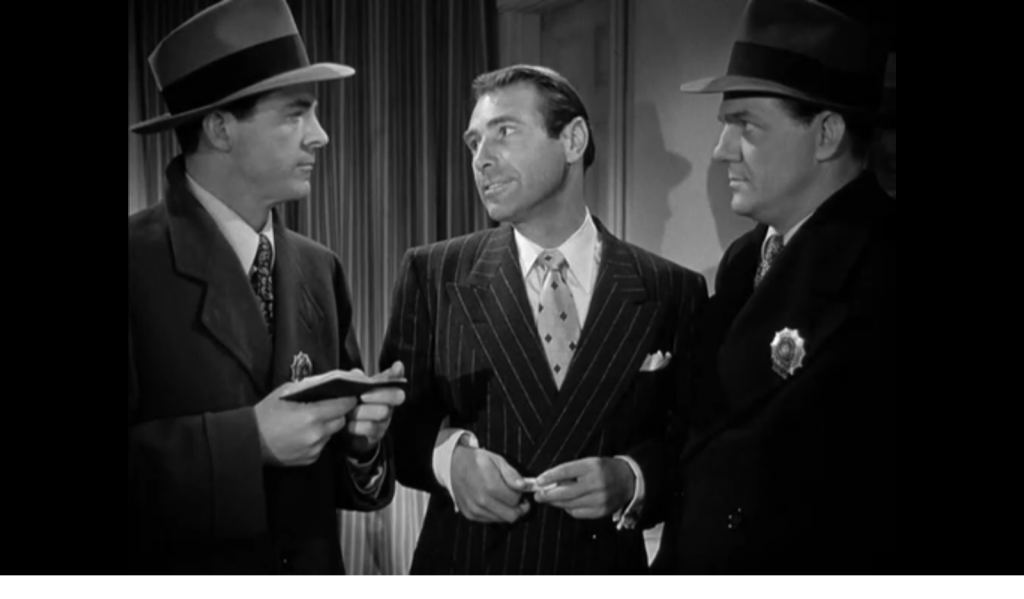
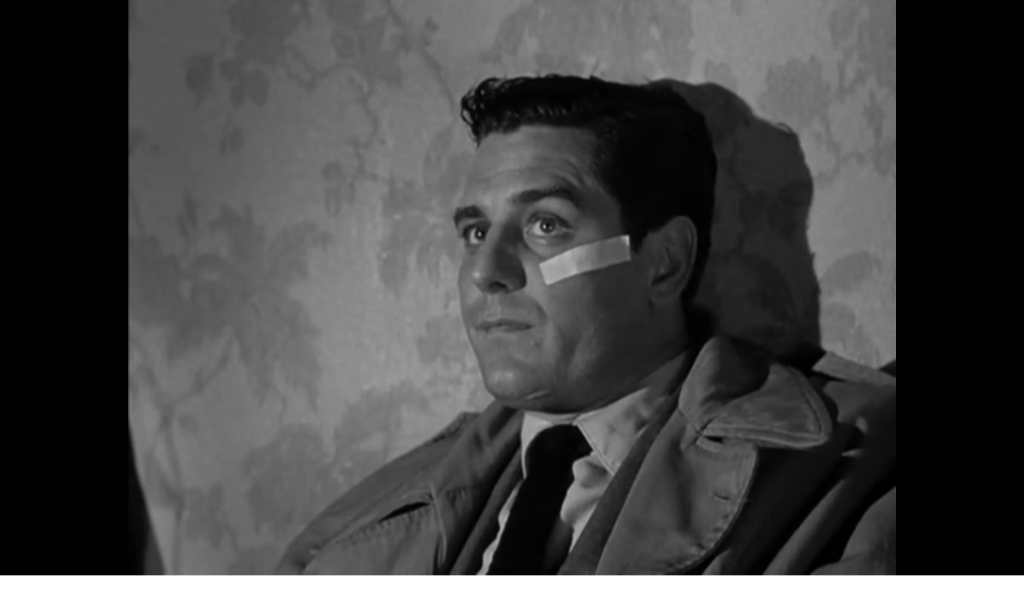
- Joseph LaShelle’s cinematography
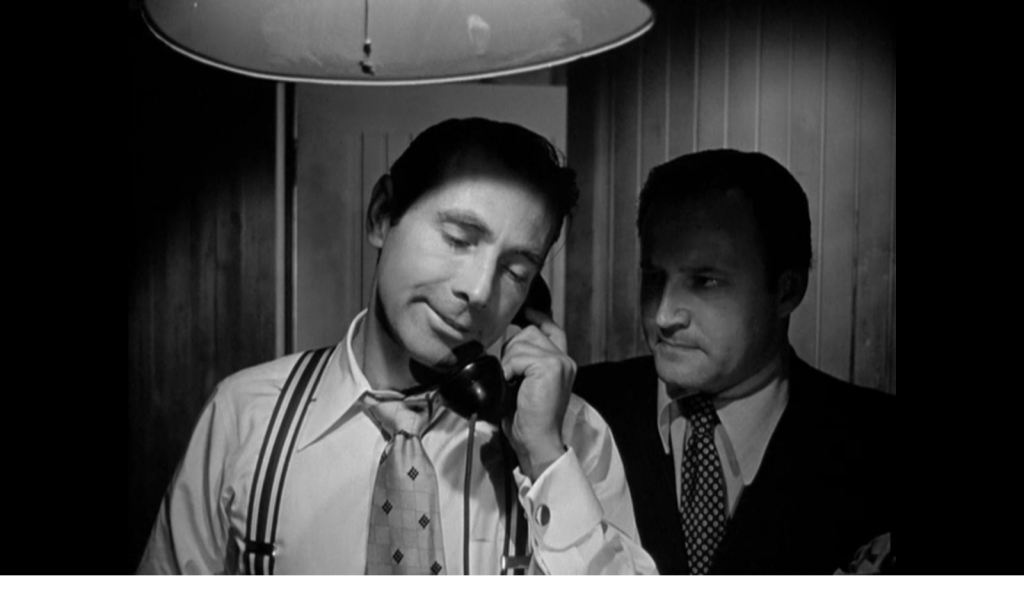
- Ben Hecht’s smart, taut script
Must See?
Yes, as one of Preminger’s finest films, and an excellent noir all-around.
Categories
- Good Show
- Important Director
Links:
|
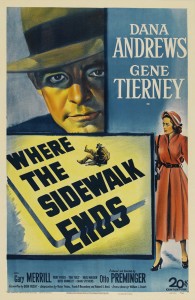







2 thoughts on “Where the Sidewalk Ends (1950)”
A once-must as solid noir.
Where *does* the sidewalk end? Where you’re cornered, one supposes.
I don’t recall ever seeing this one before – I’ll admit it builds nicely (with some unexpected touches) and I was engaged throughout, but I can’t say it had unique impact. Preminger’s direction is particularly sharp and he does get strong performances out of his cast. (It’s interesting to note how certain actors show very different sides of themselves: compare, for example, Merrill’s work here with his ‘Bill’ in ‘All About Eve’; likewise Karl Malden’s brazen lieutenant with his gentler Mitch in ‘A Streetcar Named Desire’, etc.)
What I find most intriguing in this film is the fact that Andrews and Malden come off as somewhat similar – the difference being that Andrews’ character has no real leverage but Malden does; therefore, Andrews seems to always lose. Of course, there’s one other significant difference: Andrews operates from a place of real conviction; Malden’s drive reads as rooted in ambition.
I must say the ‘accidental murder’ aspect carried less weight for me since Andrews really didn’t do anything wrong. Had that been handled differently to accomplish the same end, I might have found it more compelling. And, yes, I do find the film’s last few minutes a bit unsatisfying as well.
However, the real reason to see this film is Andrews. This is an especially good role for him and he does a fine job.
Fave scene (for some reason, which has nothing to do with the main characters): Andrews asks his partner to loan him $300; the partner then has a bit of a verbal tussle with his wife.
The “fave scene” you call out is one I also remember clearly — and prime evidence of the top-notch work done in the smallest of roles by character actors here. (Kudos to the casting team as well.)